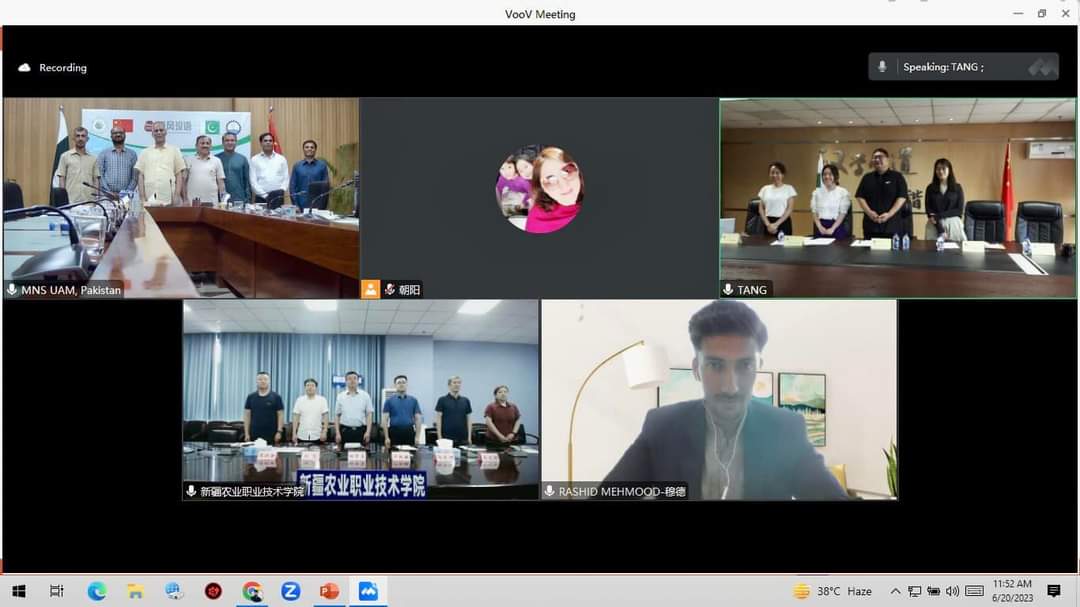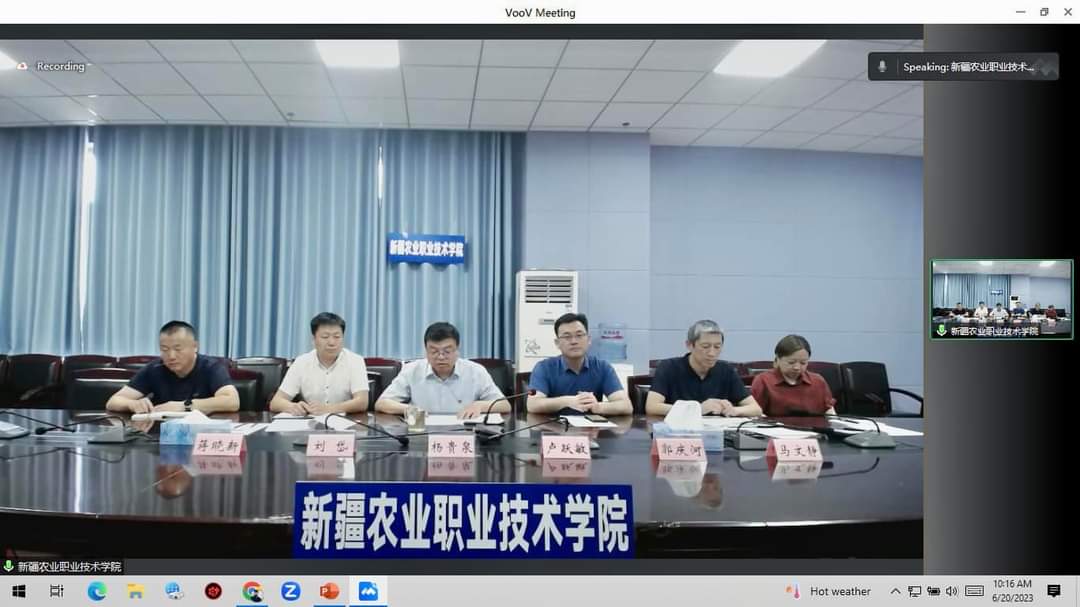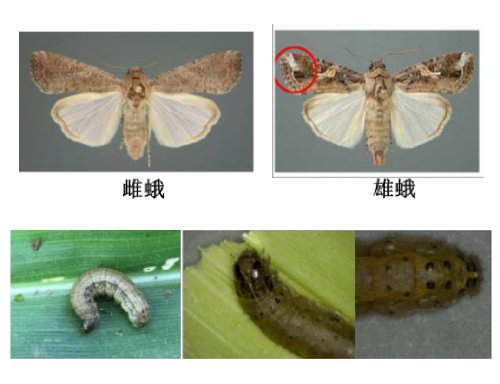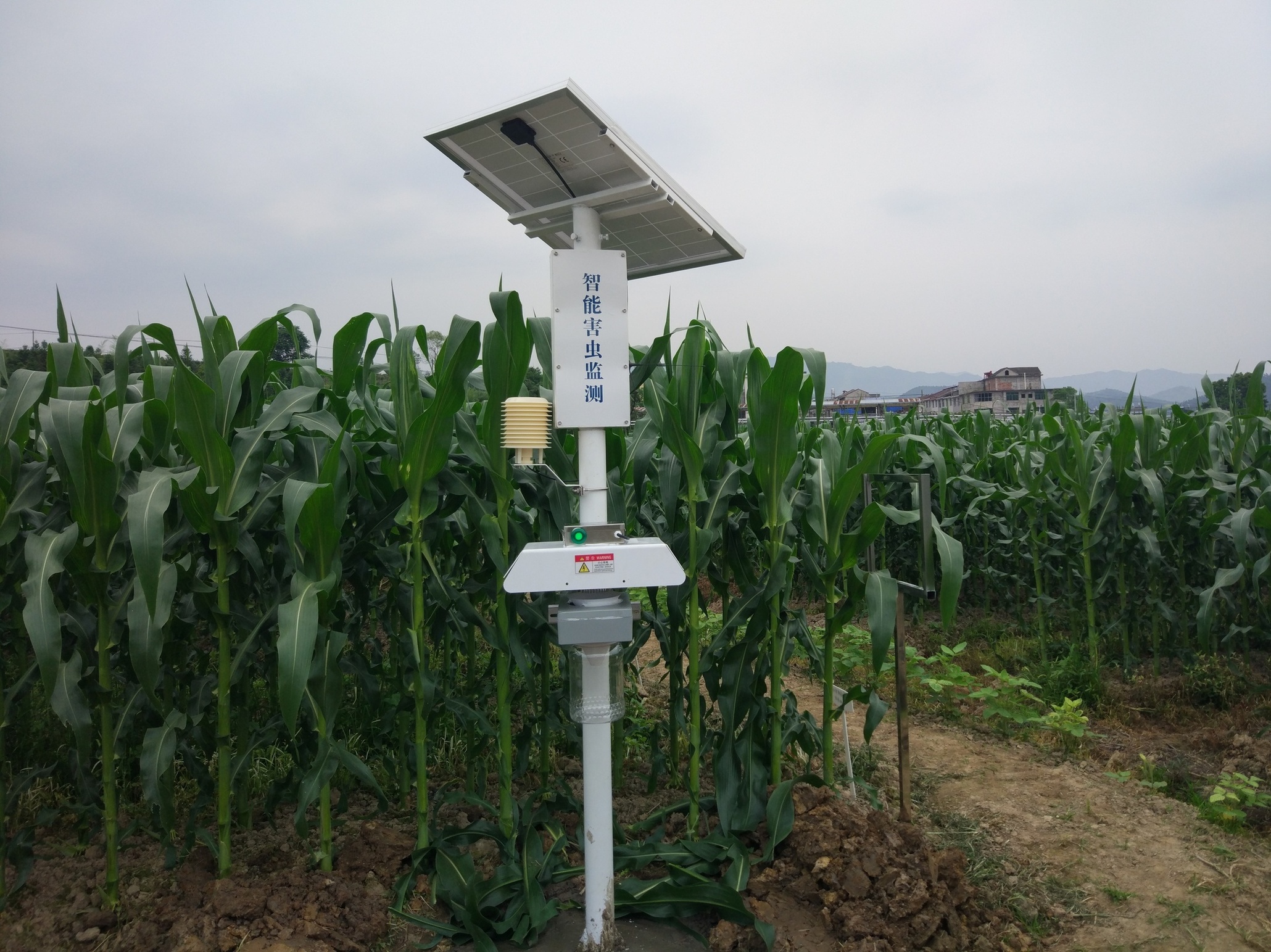ghazi52
PDF THINK TANK: ANALYST

- Joined
- Mar 21, 2007
- Messages
- 103,045
- Reaction score
- 106
- Country
- Location
,.,.,.
Jun 20, 2023
ISLAMABAD - The Faculty of Veterinary and Animal Sciences (FVAS), MNS University of Agriculture, Multan, and Xinjiang Agricultural Vocational Technical College, China, held an online meeting to launch Sino-Pak dual diploma program in livestock management at FVAS.

Under the dual diploma program, students will study initial two years in Pakistan and one year in Xinjiang Agricultural Vocational Technical College, according to an update by the FVAS. The two institutions had signed an MoU in February 2023 for the purpose.
A Faculty Exchange Program will also be funded in addition to online training of animal husbandry and veterinary science teachers of FVAS.
Furthermore, Xinjiang Agricultural Vocational Technical College will establish modern agriculture and animal husbandry demonstration training centre at MNS University to organize trainings for Pakistani veterinary professionals, technical personnel and industrial partners.
Vice Chancellor Dr Asif Ali said on the occasion that this partnership will not only benefit students but also contribute to the development of livestock industry in Pakistan.
Dr Asif Raza, Dean FVAS, said that aim of the program will provide the students with a diverse and enriching learning experience to develop their skills in livestock management and animal care in a multicultural environment.
Prof. Yang Guiquan, Principal of Xinjiang Agricultural Vocational Technical College; Guo Qinghe, Deputy Director of Animal Science and Technology Institute; Jiang Xiaoxin, Dean Department of Animal Husbandry and Veterinary Medicine and Ma Wenjing, Dean of Int’l Cooperative Office from Xinjiang Agricultural Vocational Technical College, attended the meeting.
Max Ma, Director and Executive President of Tang Pakistan was also present during the online meeting, among others.

MNS University to launch Sino-Pak dual diploma in livestock management
By Khalid AzizJun 20, 2023
ISLAMABAD - The Faculty of Veterinary and Animal Sciences (FVAS), MNS University of Agriculture, Multan, and Xinjiang Agricultural Vocational Technical College, China, held an online meeting to launch Sino-Pak dual diploma program in livestock management at FVAS.

Under the dual diploma program, students will study initial two years in Pakistan and one year in Xinjiang Agricultural Vocational Technical College, according to an update by the FVAS. The two institutions had signed an MoU in February 2023 for the purpose.
A Faculty Exchange Program will also be funded in addition to online training of animal husbandry and veterinary science teachers of FVAS.
Furthermore, Xinjiang Agricultural Vocational Technical College will establish modern agriculture and animal husbandry demonstration training centre at MNS University to organize trainings for Pakistani veterinary professionals, technical personnel and industrial partners.
Vice Chancellor Dr Asif Ali said on the occasion that this partnership will not only benefit students but also contribute to the development of livestock industry in Pakistan.
Dr Asif Raza, Dean FVAS, said that aim of the program will provide the students with a diverse and enriching learning experience to develop their skills in livestock management and animal care in a multicultural environment.
Prof. Yang Guiquan, Principal of Xinjiang Agricultural Vocational Technical College; Guo Qinghe, Deputy Director of Animal Science and Technology Institute; Jiang Xiaoxin, Dean Department of Animal Husbandry and Veterinary Medicine and Ma Wenjing, Dean of Int’l Cooperative Office from Xinjiang Agricultural Vocational Technical College, attended the meeting.
Max Ma, Director and Executive President of Tang Pakistan was also present during the online meeting, among others.








